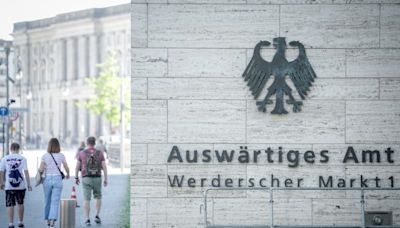Search results
Germany (German: Deutschland) is a country in Central and Western Europe that stretches from the Alps, across the North European Plain to the North Sea and the Baltic Sea. It is the second-most populous country in Europe after Russia , and is seventh-largest country by area in the continent.
The demography of Germany is monitored by the Statistisches Bundesamt (Federal Statistical Office of Germany). According to the most recent data, Germany's population is 84,607,016 (30 September 2023) making it the most populous country in the European Union and the nineteenth-most populous country in the world.
Germany is a democratic and federal parliamentary republic, where federal legislative power is vested in the Bundestag (the parliament of Germany) and the Bundesrat (the representative body of the Länder, Germany's regional states).
2 days ago · Germany, country of north-central Europe, traversing the continent’s main physical divisions, from the outer ranges of the Alps northward across the varied landscape of the Central German Uplands and then across the North German Plain.
Germany, officially the Federal Republic of Germany, is a country in the western region of Central Europe. It is the second-most populous country in Europe after Russia, and the most populous member state of the European Union.
Germany – federal parliamentary republic in Western-Central Europe consisting of 16 constituent states (German: Bundesland), which retain limited sovereignty. Its capital and largest city is Berlin .
From Wikipedia, the free encyclopedia. The concept of Germany as a distinct region in Central Europe can be traced to Julius Caesar, who referred to the unconquered area east of the Rhine as Germania, thus distinguishing it from Gaul.






